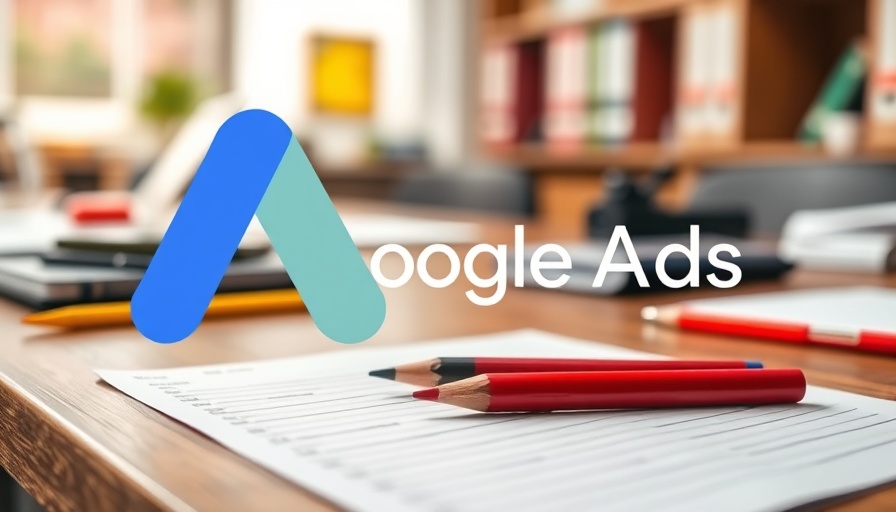
The New Game Changer: Google Ads Performance Max Terms
Google Ads is ushering in a major shift in how digital marketers track and optimize their campaigns. Recently, Google's performance max (PMax) terms have been integrated into the search terms report, a development that has ignited excitement among Google advertisers. This enhancement allows marketers to gain deeper insights into the specific search queries driving traffic to their ads, helping them to refine their strategies and achieve better outcomes.
Understanding the Impact of PMax Terms
The introduction of PMax terms represents a significant evolution in the Google Ads ecosystem. By incorporating these terms into the search terms report, advertisers can now see how their PMax campaigns are performing based on actual search queries. This visibility empowers marketers to make data-driven decisions, allowing for a more nuanced approach to managing keywords, bidding strategies, and overall campaign effectiveness.
Why This Matters for Small Business Owners and Agencies
For small business owners, the ability to examine the nuances of search terms offers a transformative advantage. In a landscape where every dollar counts, understanding how to effectively target audiences can lead to significant savings and improved ROI. Agencies, too, benefit from this enhancement, as it equips them to better serve their clients by identifying effective search queries, optimizing ad spend, and driving conversions.
Real-World Reactions and Community Sentiment
Responses to this new update on social media have largely been positive, with many in the Google Ads community expressing gratitude for the greater transparency. However, it’s essential to note that not all advertisers have reported seeing these changes implemented yet. This gradual rollout suggests that patience may be necessary for some users as Google finalizes the features on their platform.
Current Trends and Future Predictions in Google Ads
As Google continues to innovate with AI-driven solutions like Performance Max campaigns, advertisers can expect a future where artificial intelligence not only streamlines workflow but also enhances targeting precision. This trend will likely result in new strategies and tools being developed to leverage these insights, propelling businesses forward as they adapt to the ever-changing digital landscape.
Taking Action: Maximize Your Marketing Strategy
As marketers navigate the new era introduced by PMax terms, there are proactive steps to ensure you leverage this information effectively. Start by routinely analyzing your search terms report to identify valuable queries and optimize your ad campaigns accordingly. Stay engaged with community discussions and platforms like X to keep abreast of experiences shared by other marketers, further enriching your understanding of best practices.
Conclusion: Embrace Change for Better Results
The integration of Performance Max terms into the Google Ads search terms report marks a pivotal moment for advertisers everywhere. Embracing this change and adapting to new insights will not only improve your campaigns but will also position your business to navigate the complexities of digital marketing successfully. Don’t wait to explore these new tools; equip your marketing strategy with the insights Google now provides and watch your advertising efforts flourish.
 Add Row
Add Row  Add
Add 




Write A Comment